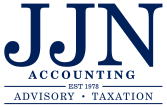In Part 1 of THINKING SMSF – RISKS AND BENEFITS, we discussed the rules and regulations governing the management of SMSFs as well as the associated risks and benefits of owning and managing your SMSF.
In this part, we will cover the common mistakes we see, with a summary of trustees most common do’s and don’ts.
Do
- Seek proper advice on whether SMSF is for you. See a qualified professional to assist and guide you in setting up the structure and the fund, register your fund ABN, TFN, formulate an investment strategy, and plan an exit strategy.
- Set up SMSF bank account and an electronic address.
- Conform to the superannuation and taxation laws, the Sole Purpose test per s62 SIS Act, inform the ATO of any changes to the fund, submit the SMSF’s annual tax returns
- Maintain and keep your personal assets distinct and separate from the fund, as well as those of the individual or corporate trustees you have chosen and appointed.
- Appoint an independent auditor who is licensed by the Australian Securities and Investments Commission (ASIC).
- The purpose of the fund is for retirement use. Must consider plan probability, potential returns, liquidity requirements, investments and insurances.
- Trustees of SMSF funds must meet their obligations under legislation and trust law. For example, s14B(2) of the New South Wales Trustee Act 1925 states the following duties:
- Exercise the powers of a trustee in the best interests of all present and future beneficiaries of the trust.
- Invest trust funds in investments that are not speculative or hazardous.
- Act impartially towards beneficiaries and between different classes of beneficiaries.
- Take advice
Don’t
- Don’t access the funds earlier than otherwise allowable. The funds cannot be retrieved for a purpose other than retirement.
- Don’t receive a personal benefit from the fund’s investments or personally use the assets, such as a holiday house or a unit for family members.
- Don’t sell investments or assets to one of the fund members (arm’s length) at a price under its true market value.
- Don’t let the fund’s bank account become overdrawn.
- Don’t lend fund monies to yourself or family members or other members of the fund. Don’t use fund monies to pay for personal or unrelated expenses. Contravention can be subjected to civil or criminal penalties under s65 SIS Act.
- Don’t allow the fund to borrow money from any person other than in accordance with s67 SIS Act, and the limited recourse borrowing arrangements in accordance with s67A and s67B SIS Act, and the ATO SMSF ruling 2012/1 (SMSFR 2012/1). These regulations permit an SMSF, in specific circumstances, to purchase properties, and occasionally other assets, through limited recourse borrowing arrangements or through instalment warrants.
- Don’t fail to continuously educate yourself with the most recent rules and regulations. Cost of course of education cannot be reimbursed from the fund assets.
SMSF is not for everyone and certainly should not be sought without obtaining proper advice and tax planning. If done properly, it can be a powerful tax vehicle.
By Gregory Atamian – JJN Associates Accountants and Tax Advisors.
Photo: Broome, Western Australia – By Patrycja Slawuta
The content and the references made in this article are correct as at the publication date and are for general information and should not be relied upon as an advice. If you wish to seek particular advice, call us on 02 9997 4000.
